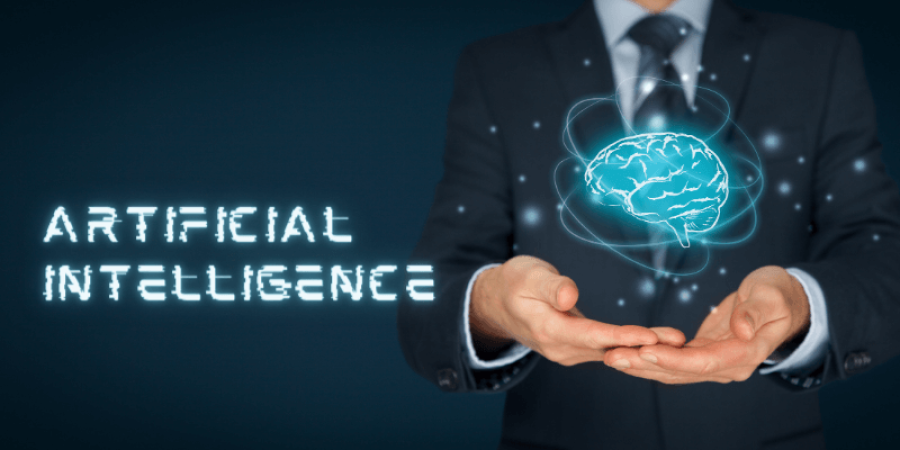What are the Benefits of AI?
What are the Benefits of AI?
Unveiling the Advantages of Artificial Intelligence
AI, short for Artificial Intelligence, has become a prominent buzzword in today's technology-driven world. It refers to the development of computer systems capable of performing tasks that typically require human intelligence. From autonomous vehicles to voice assistants and smart home devices, AI has permeated various aspects of our lives. In this article, we will explore the myriad benefits of AI and how it is transforming industries across the globe.
Table of Contents
1. Introduction: Embracing the Power of AI
2. Improving Efficiency and Productivity
- Enhancing Decision-Making Processes
- Automating Repetitive Tasks
- Optimizing Resource Allocation
- Streamlining Operations
3. Advancements in Healthcare
- Precision Medicine and Personalized Treatments
- Early Disease Detection and Diagnosis
- Drug Discovery and Development
- Improved Patient Care and Monitoring
4. Revolutionizing Transportation and Logistics
- Autonomous Vehicles: The Future of Transportation
- Optimized Route Planning and Fleet Management
- Efficient Supply Chain Management
5. Enriching the Customer Experience
- Chatbots and Virtual Assistants
- Personalized Recommendations and Targeted Advertising
- Voice Recognition and Natural Language Processing
- Enhanced Customer Service and Support
6. Transforming Manufacturing and Industry
- Automation of Production Processes
- Predictive Maintenance and Quality Control
- Supply Chain Optimization
- Enhanced Workplace Safety
7. Fueling Financial Services and Banking
- Fraud Detection and Prevention
- Risk Assessment and Management
- Algorithmic Trading and Investment Analysis
- Improved Customer Service and Personalization
8. Empowering Education and Learning
- Adaptive Learning Systems
- Intelligent Tutoring and Personalized Instruction
- Efficient Administrative Tasks
- Virtual Reality and Immersive Experiences
9. Augmenting Cybersecurity
- Threat Detection and Response
- Anomaly Detection and Behavioral Analysis
- Vulnerability Assessment and Risk Mitigation
- Data Protection and Privacy Measures
10. Facilitating Scientific Research
- Data Analysis and Pattern Recognition
- Computational Modeling and Simulation
- Accelerating Drug Discovery and Development
- Environmental Monitoring and Conservation
11. Enhancing Agriculture and Food Production
- Precision Farming and Crop Management
- Automated Harvesting and Sorting
- Livestock Monitoring and Management
- Food Safety and Quality Control
12. Advancing Space Exploration
- Autonomous Rovers and Probes
- Data Analysis and Interpretation
- Astronaut Assistance and Safety
- Mission Planning and Operations
13. Supporting Environmental Sustainability
- Energy Management and Optimization
- Waste Management and Recycling
- Climate Change Prediction and Adaptation
- Biodiversity Conservation and Monitoring
14. Overcoming Language Barriers
- Real-Time Language Translation
- Natural Language Processing and Understanding
- Cross-Cultural Communication and Collaboration
- Content Localization and Globalization
15. Assisting People with Disabilities
- Speech Recognition and Assistive Communication
- Vision and Hearing Assistance
- Mobility Support and Accessibility Solutions
- Cognitive and Learning Aid
16. Promoting Creativity and Artistic Expression
- AI-Generated Art and Music
- Creative Content Generation and Curation
- Virtual Reality and Immersive Experiences
- Storytelling and Narrative Generation
17. Accelerating Scientific Discoveries
- Drug Discovery and Development
- Genomic Analysis and Precision Medicine
- High-Performance Computing
- Data Mining and Knowledge Extraction
18. Increasing Workplace Safety
- Predictive Analytics for Occupational Hazards
- Monitoring and Alert Systems
- Emergency Response and Preparedness
- Risk Assessment and Mitigation
19. Boosting Marketing and Advertising
- Data-Driven Insights and Analytics
- Targeted Advertising and Customer Segmentation
- Social Media Monitoring and Sentiment Analysis
- Campaign Optimization and Personalization
20. Improving Human-Computer Interaction
- Natural Language Processing and Understanding
- Gesture and Facial Recognition
- Emotion Detection and Sentiment Analysis
- Context-Aware Computing
21. Preserving Cultural Heritage
- Digital Preservation and Restoration
- Virtual Museums and Exhibitions
- Historical Data Analysis and Reconstruction
- Artifact Authentication and Provenance
22. Enhancing Personal Productivity
- Intelligent Personal Assistants
- Task Management and Organization
- Calendar and Schedule Optimization
- Smart Home Integration
23. FAQs: Answering Common Questions About AI
- What are the potential risks and challenges associated with AI?
- Can AI replace human jobs?
- How does AI impact privacy and data security?
- Is AI biased or prone to discriminatory behavior?
- What are the ethical implications of AI?
- How can individuals learn more about AI?
24. Conclusion: Embracing the Power of AI for a Brighter Future
Introduction: Embracing the Power of AI
Artificial Intelligence has emerged as a revolutionary technology that has the potential to transform the world as we know it. The rapid advancements in AI have paved the way for countless applications, revolutionizing various industries and improving our everyday lives. AI enables machines to perform tasks that traditionally required human intelligence, such as problem-solving, pattern recognition, and decision-making. With its ability to process vast amounts of data and learn from experience, AI is unlocking new possibilities and driving innovation across sectors.
From healthcare and transportation to finance and education, AI is reshaping industries by automating processes, enhancing decision-making, and improving overall efficiency. The benefits of AI are far-reaching, and as we delve deeper into its potential, we realize the transformative power it holds. In this article, we will explore the numerous advantages of AI and how it is reshaping the world we live in.
What are the Benefits of AI?
Artificial Intelligence brings forth a multitude of benefits that have the potential to revolutionize the way we live and work. Let's take a closer look at some of the key advantages of AI:
1. Improving Efficiency and Productivity
AI technologies have the ability to significantly enhance efficiency and productivity in various domains. By automating repetitive and mundane tasks, AI allows human workers to focus on more complex and creative endeavors. Moreover, AI-powered algorithms can optimize resource allocation, streamline operations, and provide valuable insights for informed decision-making processes.
2. Advancements in Healthcare
AI is transforming the healthcare industry by improving patient care, enhancing disease detection and diagnosis, and revolutionizing drug discovery. With the help of AI algorithms, healthcare professionals can develop personalized treatment plans, identify patterns in medical data, and analyze complex genomic information. Additionally, AI-powered devices can monitor patients in real-time, ensuring timely interventions and improved outcomes.
3. Revolutionizing Transportation and Logistics
The advent of AI has led to the development of autonomous vehicles, making transportation safer, more efficient, and environmentally friendly. AI-powered systems enable vehicles to navigate complex road conditions, optimize routes for fuel efficiency, and reduce accidents. In the logistics sector, AI algorithms can optimize supply chain management, minimize delivery times, and improve overall operational efficiency.
4. Enriching the Customer Experience
AI technologies are revolutionizing the way businesses interact with their customers. Chatbots and virtual assistants provide instant support and personalized recommendations, enhancing the overall customer experience. AI-powered algorithms analyze customer data to deliver targeted advertising and tailored product recommendations, increasing customer satisfaction and loyalty.
5. Transforming Manufacturing and Industry
AI is reshaping the manufacturing sector by automating production processes, optimizing quality control, and improving supply chain management. With the help of AI-powered robots and machines, manufacturers can increase production efficiency, reduce errors, and ensure consistent product quality. AI algorithms also enable predictive maintenance, minimizing downtime and maximizing productivity.
6. Fueling Financial Services and Banking
In the financial services industry, AI algorithms play a crucial role in fraud detection and prevention. By analyzing large volumes of financial data, AI systems can identify suspicious activities and patterns, mitigating the risk of fraud. AI-powered algorithms also enable risk assessment and management, algorithmic trading, and personalized customer service.
7. Empowering Education and Learning
AI technologies have the potential to revolutionize education by providing personalized learning experiences and efficient administrative tasks. Adaptive learning systems use AI algorithms to tailor educational content and instruction to individual students' needs, enhancing learning outcomes. Additionally, AI-powered tools facilitate administrative tasks such as grading, scheduling, and student management.
8. Augmenting Cybersecurity
In an increasingly digitized world, AI plays a crucial role in safeguarding sensitive data and protecting against cyber threats. AI-powered systems can detect and respond to threats in real-time, mitigating potential damages. AI algorithms analyze network traffic, user behavior, and system logs to identify anomalies and potential vulnerabilities, ensuring robust cybersecurity measures.
9. Facilitating Scientific Research
AI accelerates scientific discoveries by analyzing vast amounts of data, identifying patterns, and assisting in complex simulations. In fields such as genomics, drug discovery, and environmental monitoring, AI algorithms enable researchers to uncover new insights and make breakthrough discoveries. AI-powered tools also facilitate data analysis and interpretation, expediting the research process.
10. Enhancing Agriculture and Food Production
AI technologies are transforming the agriculture industry by enabling precision farming, automated harvesting, and livestock management. AI-powered systems analyze soil conditions, weather patterns, and crop health data to optimize farming practices, reducing waste and increasing yields. Additionally, AI algorithms facilitate food safety and quality control measures, ensuring safer and healthier food production.
11. Advancing Space Exploration
AI technologies play a crucial role in space exploration by enabling autonomous rovers, data analysis, and mission planning. AI-powered systems navigate and explore distant planets, analyze collected data, and assist astronauts in their missions. The ability of AI to process and interpret vast amounts of astronomical data accelerates scientific discoveries and expands our understanding of the universe.
12. Supporting Environmental Sustainability
AI contributes to environmental sustainability by optimizing energy management, waste reduction, and climate change prediction. AI algorithms analyze energy consumption patterns and optimize energy usage, reducing carbon footprints. Additionally, AI-powered systems enable efficient waste management, recycling practices, and assist in predicting and adapting to the impacts of climate change.
13. Overcoming Language Barriers
AI-powered language translation tools bridge communication gaps by providing real-time translation services. Natural language processing and understanding algorithms enable accurate translations, facilitating cross-cultural communication and collaboration. These tools are invaluable in global business settings, travel, and fostering cultural exchange.
14. Assisting People with Disabilities
AI technologies have the potential to significantly improve the lives of individuals with disabilities. Speech recognition systems and assistive communication devices enable individuals with speech impairments to communicate effectively. AI-powered vision and hearing assistance devices enhance sensory perception, while mobility support systems improve accessibility and independence.
15. Promoting Creativity and Artistic Expression
AI is pushing the boundaries of creativity and artistic expression. AI-generated art and music showcase the potential of machines to produce unique and innovative works. Creative content generation algorithms assist artists and designers in their creative processes, facilitating new forms of expression. Virtual reality technologies powered by AI offer immersive artistic experiences to audiences worldwide.
16. Accelerating Scientific Discoveries
AI technologies expedite scientific discoveries by analyzing complex data, facilitating drug discovery, and advancing genomic analysis. AI algorithms identify patterns in vast datasets, helping researchers uncover hidden insights and make scientific breakthroughs. AI-powered high-performance computing systems enable faster simulations and modeling, supporting scientific advancements in various disciplines.
17. Increasing Workplace Safety
AI plays a crucial role in ensuring workplace safety by predicting and mitigating potential hazards. Predictive analytics algorithms analyze occupational data to identify and prevent accidents and injuries. Monitoring and alert systems powered by AI provide real-time notifications and responses, safeguarding workers' well-being. Risk assessment and mitigation algorithms improve safety protocols and practices.
18. Boosting Marketing and Advertising
AI-powered analytics and insights revolutionize marketing and advertising strategies. Data-driven approaches enable businesses to target specific customer segments, personalize advertisements, and measure campaign effectiveness. Social media monitoring and sentiment analysis algorithms provide valuable insights into consumer preferences and trends, guiding marketing efforts and driving business growth.
19. Improving Human-Computer Interaction
AI technologies enhance human-computer interaction by enabling natural language processing, gesture recognition, and emotion detection. These advancements facilitate seamless interactions between humans and machines, making technology more intuitive and user-friendly. Context-aware computing systems powered by AI adapt to users' needs and preferences, providing personalized experiences.
20. Preserving Cultural Heritage
AI technologies contribute to the preservation and restoration of cultural heritage. Digital preservation techniques, virtual museums, and exhibitions enable access to historical artifacts and artworks. AI algorithms assist in historical data analysis and reconstruction, aiding in the preservation and documentation of cultural heritage for future generations. Artifact authentication and provenance systems powered by AI ensure the integrity and authenticity of valuable artifacts.

FAQs: Answering Common Questions About AI
Q: What are the potential risks and challenges associated with AI?
AI comes with its own set of risks and challenges. One of the primary concerns is the potential for AI systems to exhibit biased or discriminatory behavior, reflecting the biases present in the data they are trained on. Additionally, there are concerns about the impact of AI on employment, as some jobs may be automated, leading to job displacement. Privacy and data security are also significant concerns, as AI relies on vast amounts of data, raising questions about the protection of personal information.
Q: Can AI replace human jobs?
While AI has the potential to automate certain tasks and roles, it is unlikely to completely replace human jobs. Instead, AI is expected to augment human capabilities and enable individuals to focus on more complex and creative endeavors. AI technologies have the potential to create new job opportunities and transform industries, requiring the development of new skills and expertise.
Q: How does AI impact privacy and data security?
AI relies on vast amounts of data to train and operate effectively. This raises concerns about privacy and data security. It is essential to ensure that personal information is protected and used responsibly. Robust data protection measures, encryption, and privacy frameworks are necessary to address these concerns and safeguard individuals' rights.
Q: Is AI biased or prone to discriminatory behavior?
AI systems can exhibit biased or discriminatory behavior if trained on biased or incomplete datasets. It is crucial to ensure that AI algorithms are trained on diverse and representative data to mitigate biases. Ongoing monitoring, testing, and transparency in AI systems can help identify and address biases, ensuring fair and unbiased outcomes.
Q: What are the ethical implications of AI?
AI raises various ethical considerations. These include issues of privacy, fairness, transparency, accountability, and the potential impact on society. Ethical frameworks and guidelines are necessary to guide the development and deployment of AI technologies, ensuring that they align with societal values and respect human rights.
Q: How can individuals learn more about AI?
Individuals can learn more about AI through various resources, such as online courses, books, and workshops. Many universities and online platforms offer courses on AI and related fields. Additionally, staying updated with the latest advancements in AI through reputable sources, such as academic journals and industry publications, can provide valuable insights.
Conclusion: Embracing the Power of AI for a Brighter Future
As we have explored throughout this article, the benefits of AI are extensive and far-reaching. From improving efficiency and productivity to revolutionizing industries such as healthcare, transportation, and finance, AI is transforming the way we live and work. It has the power to enhance our everyday lives, drive innovation, and solve complex challenges.
However, it is crucial to approach the development and deployment of AI with careful consideration of its potential risks and ethical implications. By promoting transparency, fairness, and responsible use of AI technologies, we can ensure that AI serves as a powerful tool for progress and innovation.
As AI continues to evolve and shape our world, it is essential for individuals, businesses, and policymakers to stay informed and actively participate in discussions surrounding AI ethics, regulations, and the responsible development of AI. By embracing the power of AI and harnessing its benefits, we can pave the way for a brighter and more inclusive future.









Comments (0)